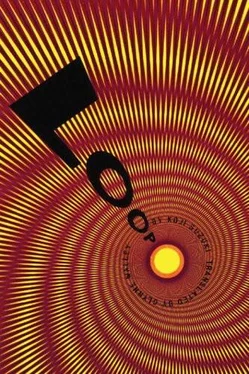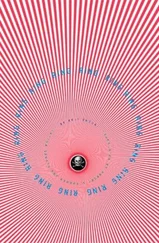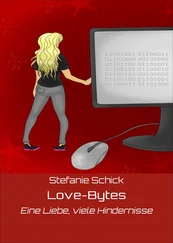"It can take a long time to figure out where a virus came from. In the case of the MHC virus, an extremely long time."
By now, Kaoru felt he could guess where the virus had come from.
"The Loop, right?"
Eliot opened his eyes wide and stared at Kaoru. "How did you figure it out?"
Kaoru enjoyed the look of sincere amazement on Eliot's face. He felt like delaying his answer to prolong this pleasure, but he hadn't the patience. "The MHC virus isn't very large. It's only got nine genes, each of which ranges from several thousand to several hundred thousand bases in length. But the total number of bases in each gene comes out to equal 2(n) x 3. That can't be a coincidence."
Eliot groaned. "Nice catch."
"Not to brag, but I have something of a sixth sense when it comes to numbers. It didn't take much to figure it out."
"And from that you were able to guess where the virus had come from?"
"Well, why did they equal 2" x 3? That was the question. The times-three part was fairly easy to understand, since three bases together make one codon specifying a single amino acid. But what about the other part of the formula, the 2? No doubt I never would have gotten the idea had I not known about the Loop project. The 2 had to come from the binary code used by computers. The virus must have leaked out of the Loop somehow. That was its birthplace."
"Exactly." Eliot gave a weak smile and clapped his hands. Whether or not the applause was sincere, it sounded like mockery to Kaoru.
Kaoru lowered his voice in an attempt to sound calm. "So we know where it came from. Does that help us find a cure?" A cure for the virus- that was the main thing.
Eliot ignored the question. "When did you figure this out?"
"Huh?"
"When did you figure out the origin of the virus?"
"About a month ago."
"I see. For me it was about six months ago." He didn't seem to be trying to brag. He was counting on his fingers like a child, a look of unguarded remorse on his face.
"I want to know what you think about it," Kaoru said, pressing him.
Eliot's response was dilatory, as he started making excuses.
"It's too bad that it had to be cancer-such a common disease. Had it been something more distinctive, maybe we could have done something at an early stage. But it was able to blend in with normal cancer as it laid its groundwork. It was like the wanted man realizing the best place to hide is in the big city. Precisely because cancer is such a common illness, the virus was able to use it as camouflage. Think about it. Who would raise a fuss just because a researcher on the Loop project died of cancer? Whereas, if one of us had died from an unknown illness, we would have been quite active in looking for the virus that caused it. But with cancer… we mourned the loss of another colleague, but didn't suspect anything. It was able to sneak in and do away with us one by one."
Kaoru could sympathize. It had been a mere seven years since this cancer was definitely proven to be viral in origin, and therefore different from normal cancer. And it had only been a year since scientists had first successfully isolated the virus. And all that time, the virus had been laying the groundwork for an explosive spread.
Kaoru imagined that Eliot had lost people close to him to the virus. His gaze, one of hostility and regret, was focused on the past.
This was Kaoru's chance to find out more about Eliot as a person, but instead Kaoru brought the conversation back on track.
"Have you been able to figure out precisely how the virus escaped from the Loop?"
"Eh? Oh, yes. Of course."
"Will you tell me?"
"We froze the Loop twenty years ago. Time has stopped inside the Loop. All of its inhabitants are frozen in place. Do you know why we put an end to the project?"
"You're going to tell me you ran out of funding."
He didn't mean it as a joke, but Eliot, after a moment's shock, laughed heartily.
"That's absolutely right. We used up our budget. We'd gotten scholarly feedback from all directions, about as much as we were going to get, and the results had been quite good, at least valuable enough to justify the expenditure. But a project like that can't go on forever. Do you have any idea how many massively parallel supercomputers we buried in the New Mexico desert? Six hundred and forty thousand. And we put another six hundred and forty thousand in the ground underneath Tokyo. We needed our own power plants just to keep them running. They ate up a staggering amount of electricity, and it took massive amounts of money to keep them running. It couldn't go on forever. And then the Loop started turning cancerous."
Kaoru felt he knew all he needed to about how that had come about. Back at Wayne's Rock he'd witnessed for himself, with his own eyes and ears, the key scenes in that chain of events. He informed Eliot of this, and Eliot nodded twice.
"So you've seen it. Or, I should say, you've experienced it. But you don't know why it began to turn cancerous. Let me say right up front that I don't know, either. The making of that odd videotape, the spread of that new virus-these are things that the individuals within the Loop couldn't help but find impossible to explain. You're thinking that even if they couldn't explain it, I should be able to, as the one who made the Loop. But I have to be honest with you: I can't explain it. Not all phenomena in the world can be explained. We've always got problems that need solving; the world is always coming apart at the seams. There's no world anywhere without its internal contradictions. Maybe the real world's internal contradictions infected the Loop; alternatively, it's not inconceivable that it was the work of a computer virus. Our security was supposed to be perfect, but as long as the Loop was connected to the outside world, there was at least the possibility of it being breached. If it was a piece of mischief, it was an extremely well-wrought one. But what interested me most was one of the individuals within the Loop: Ryuji Takayama."
Eliot stopped there and turned on Kaoru a gaze that seemed to be searching for agreement. Kaoru obliged.
"Yeah, he's a pretty interesting guy, alright."
"He's unique."
"He must hold the key to the MHC virus."
Now Eliot's eyes narrowed, as if he were trying to peer into Kaoru's brain. As if it wouldn't do to take his eyes off Kaoru for a second now.
Slowly, with suspicion, Eliot said, "Did you not see Takayama on the monitor?"
"I spent most of my time seeing things from his perspective, actually." Kaoru answered carefully, each word given special weight, in imitation of Eliot; at the same time he was checking his own memory to make sure he wasn't making any mistakes. No, that was how he remembered it: he'd made full use of Takayama's senses as he re-experienced the event.
Eliot made an awkward sort of cry and blinked rapidly several times. "Oh-ho. That explains it." Uneasy, Kaoru watched Eliot's eyes as they darted around.
"Explains what?"
"Eh? Oh, nothing. It's just that the conversation begins to move in an interesting direction. Anyway. So that means that you heard Takayama's scream just before he died as if it were your own voice."
"That's right."
He could recall it all clearly, everything he'd seen and heard through Takayama's eyes and ears. On the brink of death, Takayama had found an interface with the real world, and he'd called it. Kaoru could hear Takayama's voice echoing within his body.
"What did Takayama say to you?"
Kaoru repeated the phrase, in as close as he could come to Takayama's intonation.
"'Bring me to your world.'"
"What do you think it means?"
"I think he deduced the existence of the Loop's maker, a god from his perspective, and he wanted that god to bring him back to life in that god's world-in other words, in the real world where you and I live. At least, that's what I took it to mean."
Читать дальше
Конец ознакомительного отрывка
Купить книгу






![Yuriy Ktitorov - Sasha [Love]. Part 1](/books/459553/yuriy-ktitorov-sasha-love-part-1-thumb.webp)





